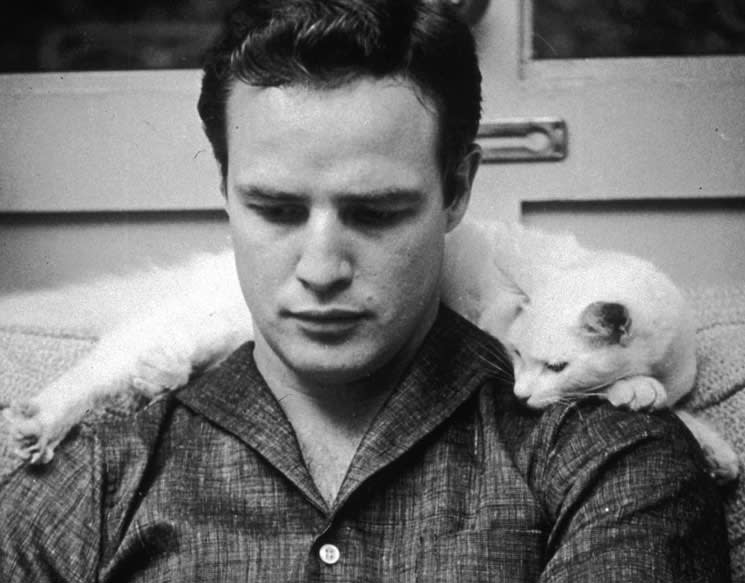Like most accomplished actors, silver screen legend Marlon Brando's greatest gift was also his biggest curse: put simply, he felt way too much.
From his life as a young and emotional boy growing up in an abusive household in Omaha, Nebraska to his sad, troublesome death 80 years afterwards at his home in the Hollywood Hills, the life of what many consider to be one of the greatest actors of all time is on full display in Listen to Me Marlon, a documentary by Stevan Riley that is as complex as it is perplexing and as breathtaking as it is heartbreaking, the truest depiction of an actor's inner workings ever shown on screen.
Made of interconnected and often random thoughts, stories and ideas recorded to tape by Brando himself throughout his career, Listen to Me Marlon is one of the most intimate biographies ever assembled. From self-hypnosis sessions to simple descriptions of his life, Brando comes alive again in the film, with his fresh, fervent and sometimes even frail voice guiding listeners across decades, capturing the cultural and societal issues of each along the way.
Brando's support of the civil and Native American rights movements are documented here like never before, as are accounts of him preparing for some of his biggest roles and rise to fame (any actor would seriously benefit from listening to the man discuss his acting methods halfway through the movie's first hour), but so are his personal and professional missteps, including (but not limited to) the time away from his children (which Brando admits led to the imprisonment of his son and subsequent tragic death of his daughter) and, later in his career, the lack of interest in roles without six figures attached to him (his blasé attitude towards his role in Superman, for which he was paid a record breaking $3.7 million — $14 million in inflation-adjusted dollars — for just 13 days of work is disgusting, especially when one hears him talk about putting Post-it notes on fellow actors foreheads to help him remember lines).
In a lot of ways, Listen to Me Marlon makes the grittiness and intense realism he brought to his films seem even more impressive, but it makes him seem more human, as well.
Brando is as true a tragic hero as has ever existed in the real world (he certainly meant well, but his life was consistently messed with by his ego and emotional pain), but it's not like he wanted us to feel bad for him. Recording over 200 hours of private conversations with yourself isn't the action of a public and put-together man, but a deeply troubled and unhappy individual trying to make sense of his confusing (and often unsettling) emotions and life path. In that way, Marlon Brando seems less like a movie star, and more like a person as concerned and confused by their day-to-day decisions as you or I.
(Passion Pictures)From his life as a young and emotional boy growing up in an abusive household in Omaha, Nebraska to his sad, troublesome death 80 years afterwards at his home in the Hollywood Hills, the life of what many consider to be one of the greatest actors of all time is on full display in Listen to Me Marlon, a documentary by Stevan Riley that is as complex as it is perplexing and as breathtaking as it is heartbreaking, the truest depiction of an actor's inner workings ever shown on screen.
Made of interconnected and often random thoughts, stories and ideas recorded to tape by Brando himself throughout his career, Listen to Me Marlon is one of the most intimate biographies ever assembled. From self-hypnosis sessions to simple descriptions of his life, Brando comes alive again in the film, with his fresh, fervent and sometimes even frail voice guiding listeners across decades, capturing the cultural and societal issues of each along the way.
Brando's support of the civil and Native American rights movements are documented here like never before, as are accounts of him preparing for some of his biggest roles and rise to fame (any actor would seriously benefit from listening to the man discuss his acting methods halfway through the movie's first hour), but so are his personal and professional missteps, including (but not limited to) the time away from his children (which Brando admits led to the imprisonment of his son and subsequent tragic death of his daughter) and, later in his career, the lack of interest in roles without six figures attached to him (his blasé attitude towards his role in Superman, for which he was paid a record breaking $3.7 million — $14 million in inflation-adjusted dollars — for just 13 days of work is disgusting, especially when one hears him talk about putting Post-it notes on fellow actors foreheads to help him remember lines).
In a lot of ways, Listen to Me Marlon makes the grittiness and intense realism he brought to his films seem even more impressive, but it makes him seem more human, as well.
Brando is as true a tragic hero as has ever existed in the real world (he certainly meant well, but his life was consistently messed with by his ego and emotional pain), but it's not like he wanted us to feel bad for him. Recording over 200 hours of private conversations with yourself isn't the action of a public and put-together man, but a deeply troubled and unhappy individual trying to make sense of his confusing (and often unsettling) emotions and life path. In that way, Marlon Brando seems less like a movie star, and more like a person as concerned and confused by their day-to-day decisions as you or I.
